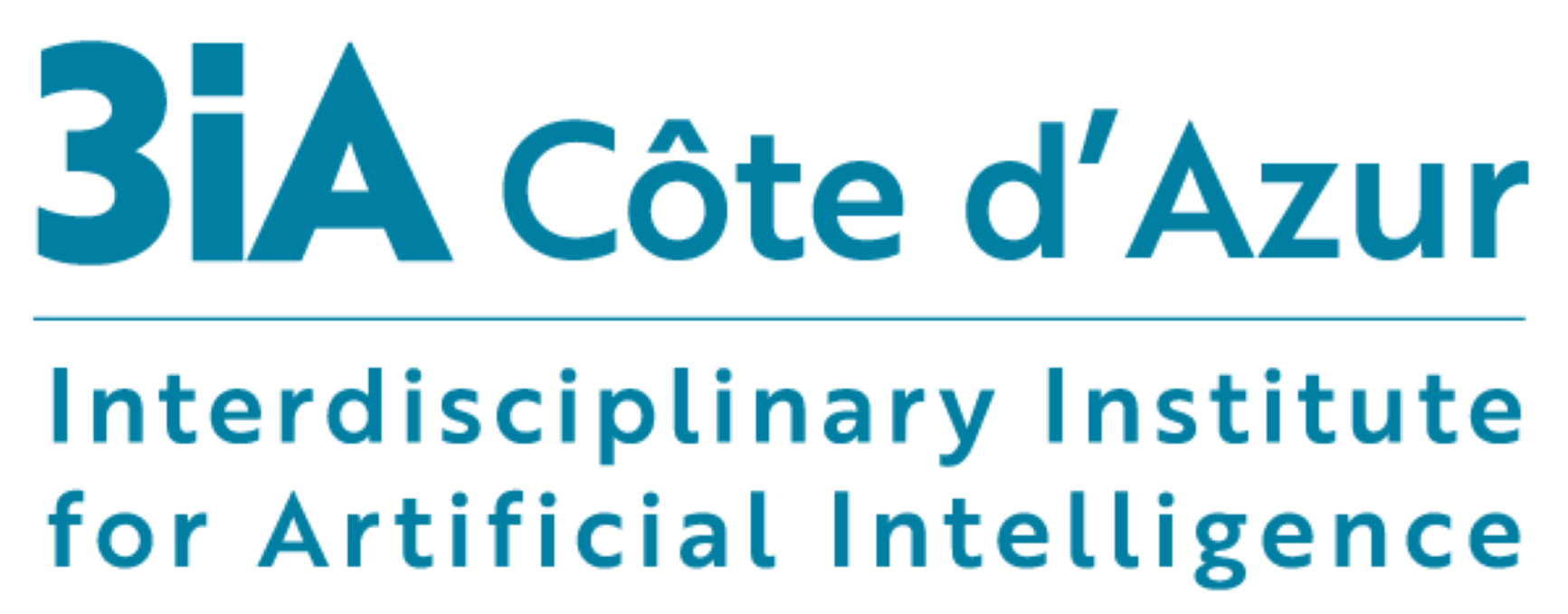Loading...
3IA Côte d'Azur - Interdisciplinary Institute for Artificial Intelligence
3IA Côte d'Azur est l'un des quatre "Instituts interdisciplinaires d'intelligence artificielle" créés en France en 2019. Son ambition est de créer un écosystème innovant et influent au niveau local, national et international. L'institut 3IA Côte d'Azur est piloté par Université Côte d'Azur en partenariat avec les grands partenaires de l'enseignement supérieur et de la recherche de la région niçoise et de Sophia Antipolis : CNRS, Inria, INSERM, EURECOM, SKEMA Business School. L'institut 3IA Côte d'Azur est également soutenu par l'ECA, le CHU de Nice, le CSTB, le CNES, l'Institut Data ScienceTech et l'INRAE. Le projet a également obtenu le soutien de plus de 62 entreprises et start-ups.
Derniers dépôts

Documents en texte intégral
754
Notices
331
Statistiques par discipline
Mots clés
Echocardiography
Information Extraction
Consensus
Graph signal processing
Linked Data
Chernoff information
Fluorescence microscopy
Biomarkers
Isomanifolds
Super-resolution
Excursion sets
Federated learning
Atrial fibrillation
Dense labeling
Optimization
SPARQL
Ontology Learning
Change point detection
Convolutional Neural Networks
Graph neural networks
Image fusion
Distributed optimization
SHACL
Geometric graphs
Extreme value theory
Electrophysiology
Atrial Fibrillation
Extracellular matrix
Uncertainty
Deep Learning
Predictive model
Healthcare
Persistent homology
Argument mining
Medical imaging
Cable-driven parallel robot
Anomaly detection
Machine learning
Artificial intelligence
Grammatical Evolution
Electrocardiogram
Convolutional neural network
Diffusion strategy
Topological Data Analysis
Visualization
RDF
Semantic web
Hyperbolic systems of conservation laws
FDG PET
Contrastive learning
NLP Natural Language Processing
Spiking Neural Networks
Knowledge graphs
Co-clustering
Hyperspectral data
Clinical trials
Coxeter triangulation
Macroscopic traffic flow models
OPAL-Meso
Linked data
Latent block model
Alzheimer's disease
COVID-19
Autonomous vehicles
Correlation matrices
Segmentation
Convolutional neural networks
Web of Things
Semantic segmentation
NLP
FPGA
CNN
Computer vision
Adversarial classification
Explainable AI
Argument Mining
Privacy
Autoencoder
Semantic Web
Clustering
Deep learning
Caching
Unsupervised learning
Federated Learning
Neural networks
53B20
Computational Topology
Computing methodologies
Diffusion MRI
Knowledge graph
Apprentissage profond
Arguments
Domain adaptation
Convergence analysis
Brain-inspired computing
Multi-Agent Systems
Spiking neural networks
Sparsity
Artificial Intelligence
Image segmentation


